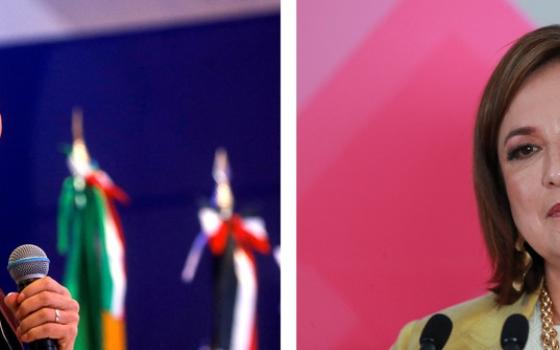The sequester looms and the two political parties are far apart on what should be done to avoid it. The Republicans insist that revenue is off the table, having been made to swallow tax hikes at the turn of the year. Democrats insist that entitlements and other key programs are off the table, having agreed to cuts in the last two years. A few brave souls like Paul Krugman say that they should can the entire budget cutting mentality and let the economy get on a sound footing first. Increasingly, it looks like Congress will do nothing and so the sequester will go into effect.
The sequester was put in place after the last round of budget negotiations, as a way to force Congress to strike a deal. The across the board cuts were considered so unpalatable, surely Congress would accept some kind of compromise amongst themselves rather than let the sequester take effect. And across the board cuts are always a bad idea. But not as bad as compromise, evidently, at least not to the political class in Washington.
The discussion displays, in spades, some of the most obvious forms of hypocrisy in Washington. Republicans are all for cutting the budget. They continually rant about out-of-control federal spending. They warn darkly of economic catastrophe – we will become like Greece! – if we do not balance the budget in ten years. But, when it actually comes time to do the cutting, they get skittish, especially when it comes to the bloated defense budget which has exploded since 9/11.
Democrats are not free from the stain of hypocrisy either, although that is not their principal sin in budget talks. As a matter of economics, Democrats might be right that the last thing the government should be worrying about right now is the federal budget deficit. But, as a matter of self-governance, the idea that the government should continually and perpetually spend more money than it takes in is a disaster. It is one thing to accept deficit spending as a way to spur the economy during or recession or in the face of a national emergency. But, if the country’s finances accept large deficits as a matter of course, and if these deficits, though large, do not stifle the economy, what happens if, in two or five years, there is a new national emergency, requiring large emergency expenditures? Will those deficits be sustainable? Will they have a nasty impact on the economy.
The federal budget is not like a family budget in part because the federal government controls the money supply. But, both parties want more government than they are willing to tax the American people to pay for, and so both parties engage in foolish ideological claims. When the difficulties of actual budget compromises are elusive, why not seek refuge in the certainties of economic ideology?
There is one silver lining in the forthcoming sequester, actually two. Thanks largely to the efforts of the United States Conference of Catholic Bishops, and the Circle of Protection it helped create two years ago, the budget axe will not fall on most anti-poverty programs. Medicaid is spared. Food stamps are spared. Other vital anti-poverty programs are spared. This protection for anti-poverty programs was achieved in behind-doors negotiations with both the Obama administration and the GOP House leadership. Sometimes, it is easier to get what one wants by speaking softly, and the bishops’ conference spoke softly, but powerfully, and got both sides to agree to leave anti-poverty programs alone when the budget axe falls in the sequester. The second silver lining: The sequester cuts fall disproportionately on the defense budget.
The challenge for the President is to make the case that while it is important to protect anti-poverty programs, it is also important to make sure that those programs that help the middle class do not bear the brunt of the remaining cuts. Why should Republicans be reluctant to close loopholes for the oil and gas industry if such reluctance means cutting student loans? Unfortunately, as we saw in the State of the Union, President Obama can make this case, he has made this case, but he saves his real emotive power for other issues than economic fairness. It was when he spoke about gun control that he sounded like a preacher. It is when he calls for equality for gays and lesbians that his rhetorical power shines through. When it comes to addressing the growing income inequality in the U.S., not so much.
The challenge for the Republicans is even greater. They need to avoid appearing like the people who applauded Mitt Romney in that room in Boca Raton when he talked about the 47%. It is not like the GOP can make the case that defending special tax cuts for specific industries is a part of their defense of the free market. No, this effort to avoid restricting tax loopholes and special tax breaks for well-connected industries, is old-style Republicanism at its worst. It is not laissez-faire, it is just lazy.
What should be done? The deal I would like to see would gradually implement cuts in federal programs, but allow the affected agencies wide leeway in deciding where the cuts fall. Congress need not micromanage these cuts, but, of course, Congress likes to micromanage the budget to make sure that the cuts do not fall in their districts. The entitlement issue would be addressed with the kinds of policy tweaks that do not undercut the promises those entitlement programs represent, such as means testing Medicare, and perhaps introducing a change in the way cost-of-living increases are computer for younger retirees, protecting the full benefits for those over, say, 80.
Finally, the President and Speaker Boehner need to come up with a tax overhaul that eliminates most loopholes and vastly simplifies the tax code. Both sides recognize the need for this, but the GOP wants the simplification to be revenue neutral and the President wants the simplification to yield more revenue. Split the difference: Simplify the code in such a way that it produces new revenue now by closing loopholes and links future reductions in the tax rates to closing the federal budget deficit. Over time, as the country’s economy continues to improve, and as budget cuts go into effect, the deficit will begin to close. When the budget is in the black, the tax rates can start to decline in tandem. That way, when the next economic downturn or national emergency comes, the country can meet its obligations without threatening the entire economy. That way, a simpler tax code will yield productivity gains now as well as new revenue, and lower tax rates when the budget deficit is closed. Everybody happy. Of course, this will happen only when both sides stop posturing for political advantage, which will be the day after the eschaton.




